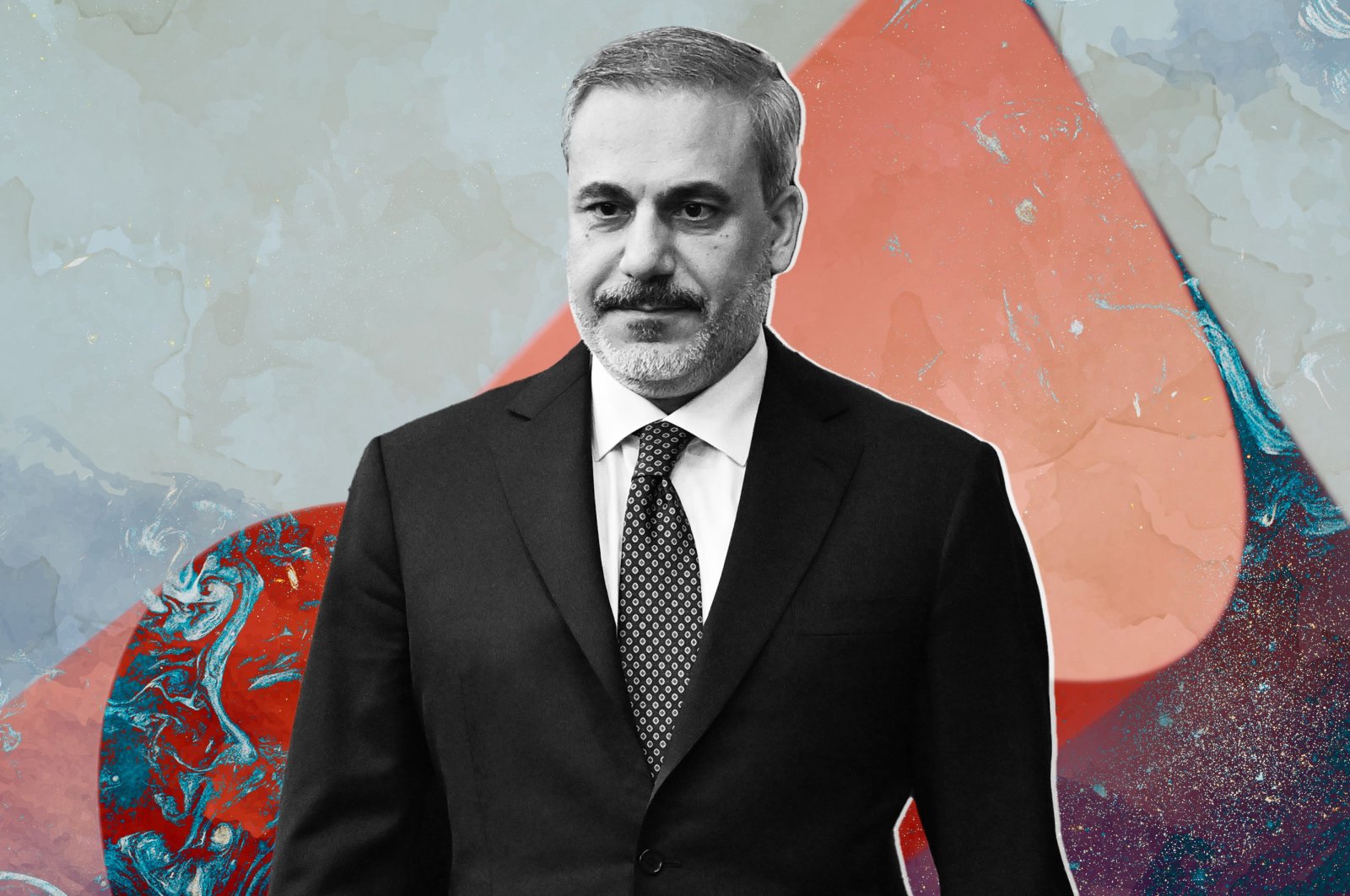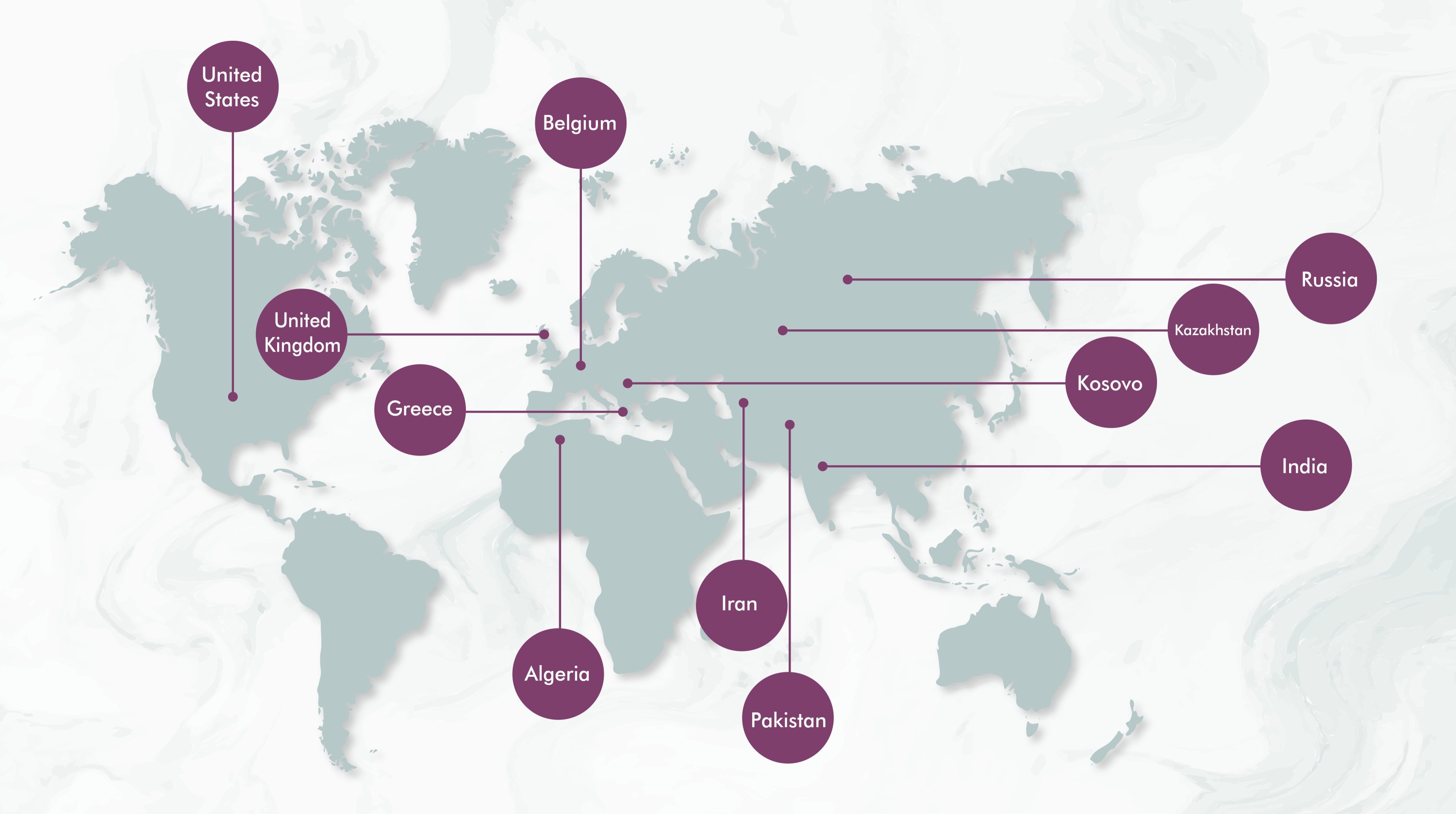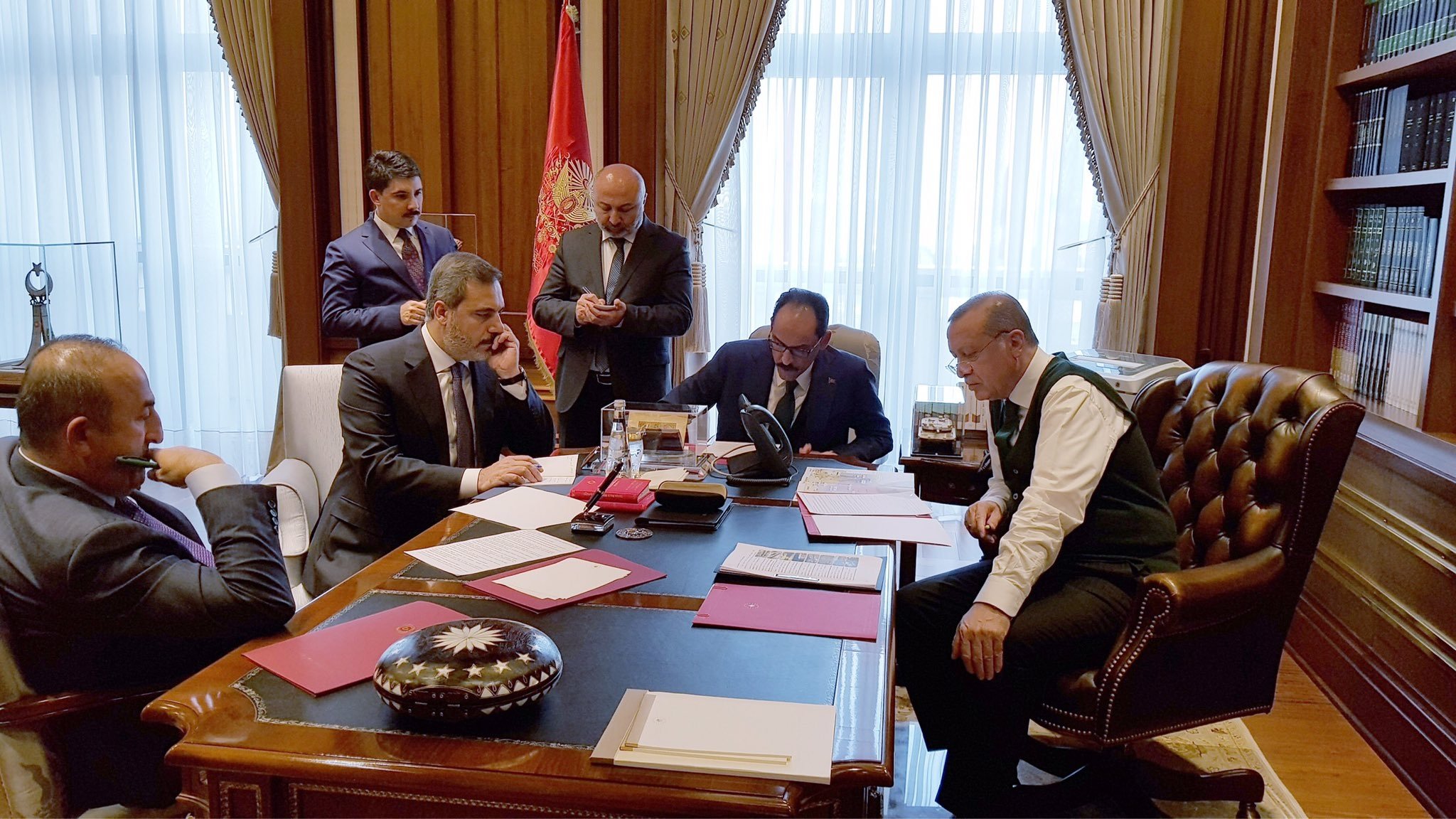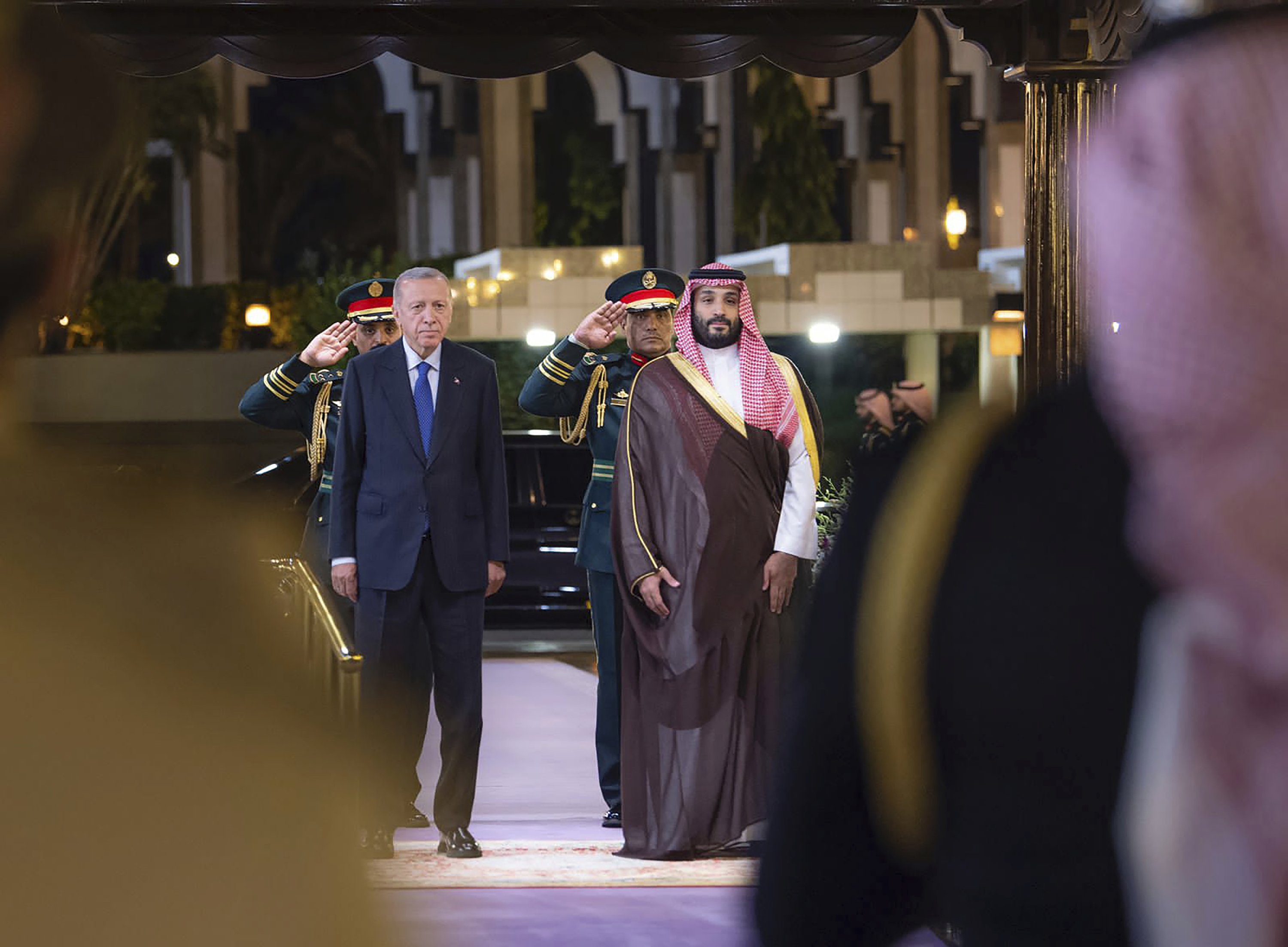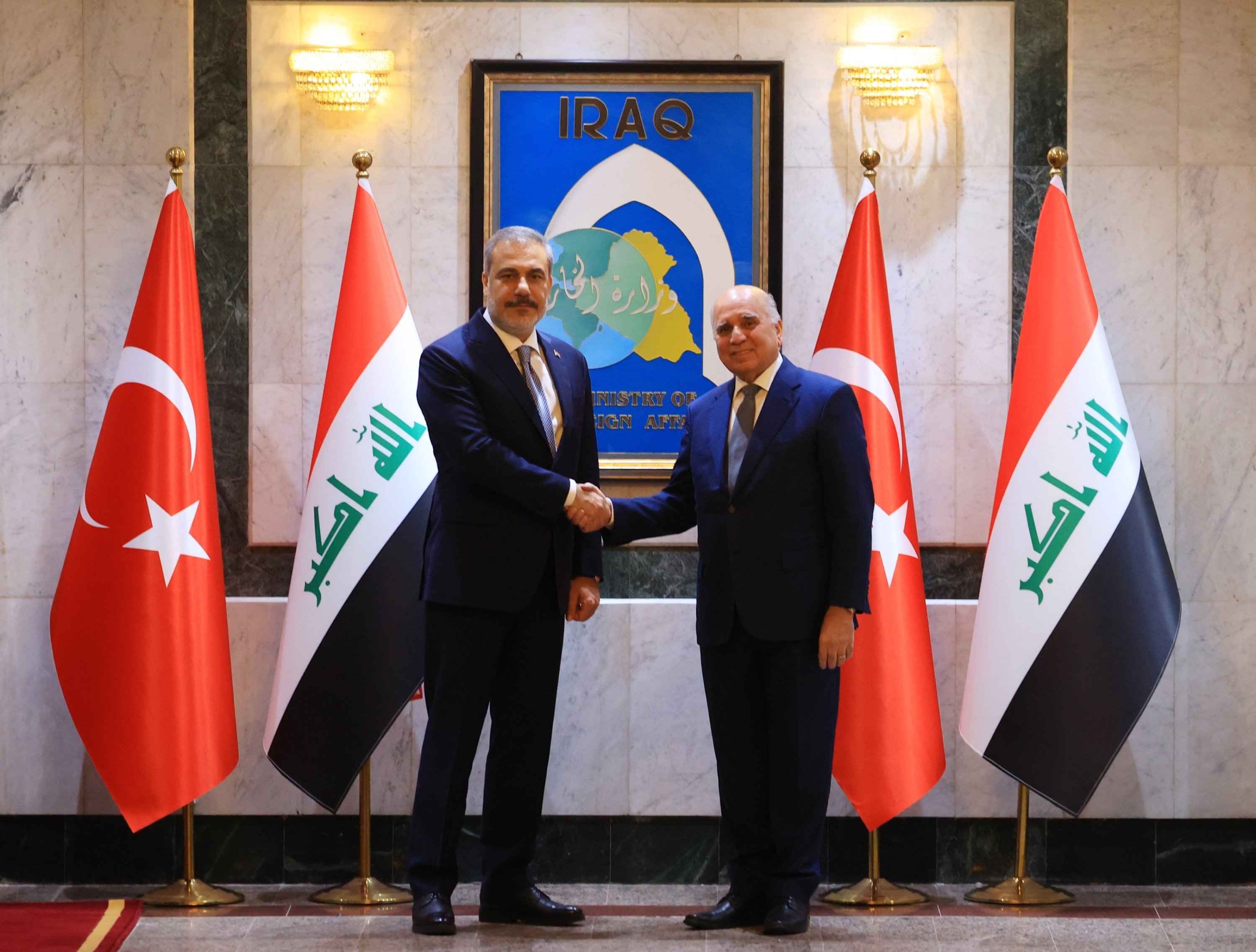It has been 107 days since former spymaster Hakan Fidan took over as Türkiye’s foreign minister, and in that time, Ankara has wasted no time in upgrading its foreign policy to a more proactive strategy. This transformation aligns with a broader trend of diplomatic normalization that Türkiye has been actively pursuing in recent years. The nation’s endeavors extend beyond its immediate neighbors, spanning regions thousands of miles away, in a determination to enhance relations with international counterparts. It adheres to the famous “Axis of Türkiye,” a viewpoint that prioritizes Türkiye’s foreign policy while incorporating local and national elements, and avoids self-isolation, as consistently emphasized by Turkish officials on various occasions.
Türkiye’s strategic recalibration has generated a spectrum of opinions, ranging from criticism to admiration. This newfound assertiveness positions the country as an active participant at almost every diplomatic table, leaving a significant imprint on global affairs.
The Turkish top diplomat is now in New York City, accompanying President Recep Tayyip Erdoğan prior the yearly U.N. summit. Upon arrival, he swiftly held meetings with his counterparts from Ireland and Germany. More are scheduled to follow.
Just last Wednesday, Fidan engaged in a meeting with his British counterpart in the capital Ankara, where both praised “cooperation,” after a series of sideline talks in New Delhi, where he attended the important annual G-20 gathering. The visit came right after he hosted his Algerian counterpart at home to hail relations at an “unprecedented level” with the African partner.
Remarkably, only in the first half of September, Fidan’s diplomatic engagements have included hosting the European Union’s Commissioner for Neighborhood and Enlargement, Greece’s foreign minister, Pakistan’s army chief, the delegation of the U.S. Council of Muslim Organizations (USCMO) and a minister from the Kosovo Democratic Turkish Party (KDTP). Simultaneously, he conducted visits to five strategic capitals, including Moscow, Tehran, Sochi, New Delhi and Astana, for high-level discussions after leaving behind a similarly busy August schedule. Fidan’s deputies have been actively involved in numerous middle-level dialogues throughout this period.
Journalists covering Fidan are already exhausted. The intense traffic can be explained by the fact that he is a newcomer to “Hariciye,” a traditional Turkish word for foreign affairs, but experts assert that there are deeper factors at play.
One perspective suggests that Türkiye’s foreign strategy is being driven by economic imperatives. The country is currently grappling with pressing economic issues, including soaring inflation and a high cost of living. In response, Türkiye appears to be fervently pursuing foreign investments through diplomatic channels in a bid to bolster its domestic economic situation at the earliest opportunity.
In response to Daily Sabah’s questions, Sami Hamdi, a prominent political analyst, said: “The primary motivations behind Türkiye’s efforts to normalize relations, are twofold. The first is the economic factor.”
Hamdi believes “economic difficulties” are a major reason for the country “to address the immediate domestic issues related to inflation and rising living costs,” but added, “the second reason has to do with the preservation of Türkiye’s sweeping foreign policy gains over the years across multiple arenas.”
Ibrahim Ulabi, a journalist based in Istanbul, echoed Hamdi, highlighting that, “Ankara aspires to regain its commercial momentum with nations, especially those in the Middle East, which deteriorated in the aftermath of the Arab Spring, as a primary engine for its economy.” For Ulabi, however, there is a second major reason behind the normalization: A policy for “the enhancement of regional and global role.”
Besides the economic angle, others point to a well-conceived road map that began in recent years during the tenure of Foreign Minister Mevlüt Çavuşoğlu and is now being activated and promoted by Fidan’s ambition and skills. It is related to, they say, Erdoğan’s obsession with the pragmatism and realism school in foreign affairs. This argument is based on the fact that Erdoğan has repeatedly expressed his willingness to negotiate with any leader who is open to a mutually beneficial agreement that promotes regional stability, security and peace, while Çavuşoğlu’s expansionist record at the Foreign Ministry is available in open sources.
For some pundits, however, this is just taking place in line with the changing face of international relations, as countries now engage in all kinds of diplomatic initiatives and negotiations with countries from all levels of power, regardless of region, economic capacity, bloc or alliance. Türkiye, according to this view, is simply seeking to maintain a balance of power, much as it has done since the early days of the republic. This approach is rooted in the country’s historical role as the successor to the Ottoman Empire and its position at the crossroads of Europe, Asia and the Middle East. Whether during the early Kemalist era, the Cold War, the Cyprus conflict or the post-Cold War period with its EU aspirations, the underlying rationale has adapted to changing dynamics and safeguarding the nation’s interests. Some observers can’t help but recall the famous statement made by late Prime Minister Ismet Inönü, who, in response to then-U.S. President Lyndon Johnson’s 1964 letter threatening Ankara over a possible Cyprus operation, asserted, “A new world order would be established with Türkiye in it.”
‘Grand convergence’
Yusuf Erim, a leading foreign policy expert, is one of those pundits, who links Türkiye’s strategy with a “strategic overhaul” the region is undergoing. For Erim, “this is clearly evident from the simultaneous normalization initiatives that are being carried out by other regional actors.”
“Türkiye reads the developments just like Israel, Saudi Arabia, the United Arab Emirates (UAE), Egypt and Qatar,” he said and expressed that “the simultaneous nature” of what he terms as “grand convergence” “isn’t a coincidence.”
Erim underscored the dynamic nature of diplomacy, which is in a constant state of flux, evolution and adaptation in response to regional realities. In his view, the region Türkiye is situated in is currently experiencing such transformations, prompting Türkiye to adjust its diplomatic approach accordingly.
Despite diverse analyses and perspectives, experts, however, agree that Türkiye has entered a phase of firm normalization, with an aim to mend its previously troubled relations with partners in various regions, including even Bashar Assad of Syria.
Positive, incomplete, Syria
Ulabi divides the countries with which the Turkish government is engaging into three categories; those that “positively respond,” those that “give incomplete responses” and “Syria.”
“In the first category, the bilateral relations have noticeably improved, particularly on trade and economic partnerships,” he said. “These countries are mainly Saudi Arabia, the UAE and Israel.”
Hamdi added, “The reconciliation with the UAE has been relatively easy given the converging interests in multiple arenas including the Horn of Africa and Libya,” while “the reconciliation with Saudi Arabia has also been complex as Riyadh focuses more on security agreements and the purchase of the Bayraktar drones rather than the economic investment in domestic industries that Türkiye is looking for.”
Last August, after Erdoğan’s visit to the Saudi capital, Riyadh and Türkiye’s drone pioneer Baykar signed a strategic agreement to localize the production of unmanned aerial vehicles (UAVs) in the kingdom, and to transfer technology. The sides hailed “historic steps taken for regional and global stability.”
Erim expects “Türkiye to play a much bigger role as a security provider in the Gulf. A bigger role meaning not just selling weapons, but part of the regional security architecture.”
“I wouldn’t be surprised if Türkiye is invited to open another military base in the region. My prediction is that the UAE would be a suitable partner for this endeavor,” he highlighted.
Doubts at hand
“The second category countries have unique reasons that influence their decisions,” Ulabi explained. According to the journalist, Iraq, Egypt, the U.S. and the EU are in this category.
“Doubts and a degree of mistrust still prevail in these countries despite reaching understandings on pending issues,” he said.
Speaking to Daily Sabah’s Didenur Daştan, experts recently said, “A firm distrust is undermining any tentative attempt at progress in Turkish-U.S. ties already made fragile by a slew of unresolved disagreements and even a potential change in leadership in Washington will not be enough to upend the scales.”
On the EU front, just as things were expected to improve, a controversial report by the European Parliament revealed an air of mistrust that faced a backlash from Erdoğan, who said on his way to New York City on Saturday that Ankara could cut ties with the EU if it deemed necessary. The said report argued that the country’s accession to the 27-member bloc could not proceed under the current circumstances and urged members to act against it.
“For instance, Iraq is negotiating with Türkiye on several contentious issues of mutual interest, such as terrorism, water and oil exports from northern Iraq,” he said and added, “Iraq has its particular demands on these matters, and the two sides have not yet reached a specific agreement.”
In August, high-level visits occurred between both sides in Ankara and Baghdad to address outstanding issues between the two countries. The parties sought solutions, and despite cautious optimism during the meetings, no tangible outcome was reported.
According to Hamdi, “The process of normalization with Egypt has been complicated due to Cairo’s reservations over Türkiye’s expansion of influence in areas such as Libya that it considers to be its own backyard.
“Where the UAE sees room for cooperation, Cairo fears the economic competition that Türkiye brings that has rattled even European powers such as France, and also fears the popular resonance Erdoğan continues to evoke among the populations Cairo wishes to exert influence on.”
Ulabi expressed: “As for Egypt, it appears more eager than Iraq to resolve past disputes with Türkiye, but there’s a slowness in its response to Turkey’s initiatives.”
“This might be due to the complexity of the negotiations and Cairo’s reluctance to hastily move past these disputes after nearly 10 years of estrangement and tension,” he added.
The third category
“The third category includes Syria, specifically the Syrian regime, which has shown a very limited response to normalization calls,” he said. “Assad expects Türkiye to withdraw forces from Syrian territory first,” he said, while “Ankara views this condition as obstructive.”
He added, “It is believed that this should be addressed after ensuring stability in the region and reaching a political settlement in Syria that guarantees the non-return of terrorist organizations to the area adjacent to the Turkish border.”
In recent years, Türkiye and Syria have taken steps toward normalization, signaling a potential shift in their historically strained relationship. These efforts are driven by a mix of pragmatic considerations, regional dynamics and the urgent need to address common challenges.
While significant obstacles remain, including the refugee crisis and the war on terror, the evolving situation offers a glimmer of hope for improved relations in the volatile Middle East.
Türkiye shares borders with eight neighboring countries, namely Greece, Bulgaria, Georgia, Armenia, Azerbaijan, Iran, Iraq and Syria. All of them have recently suffered or are still suffering from conflicts. This unrest has put a geopolitical burden on the shoulders of Türkiye, a country ruled by a leader who, despite pressure and calls from the opposition at home, has never pursued a policy of isolation in foreign policy, even at times when it was obvious to him that he was losing public support at home.
Experts and analysts foresee that Türkiye’s commitment to a trend of normalization in its foreign affairs is expected to persist, highlighting the country’s acknowledgment of its vital role in the region and beyond.

